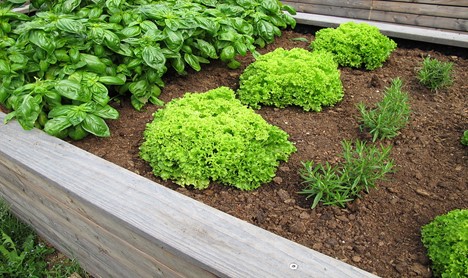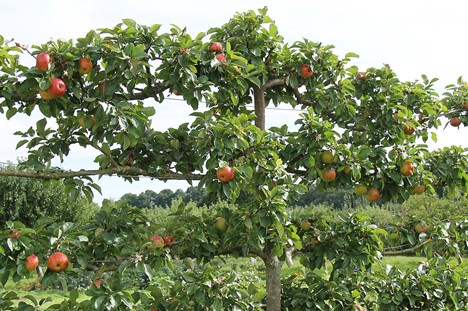
Edible landscaping is an exciting way to transform your outdoor space into a sustainable food source. It combines the beauty of traditional landscaping with the practicality of growing fruits and vegetables in your own backyard. In this blog post, we’ll discuss some of the ways to create a more edible landscape, from creating a garden bed to planting fruit trees. By doing so, you’ll have a unique and beautiful landscape that will also provide you with a delicious and nutritious bounty.
Choosing the Right Plants for Your Edible Landscape
Creating an edible landscape is a fantastic way to make the most of your outdoor space while promoting a sustainable, environmentally-friendly lifestyle. One of the most critical aspects of this process is choosing the right plants for your needs. Whether you’re a seasoned gardener or a newbie to this concept, here are some tips for selecting the best edible plants for your landscape.
Choose Both Perennial Plants and Annuals:
Perennial plants are those that come back year after year without the need for replanting. Choosing these plants for your edible landscape will save you time, energy, and money in the long run. Perennials like asparagus, rhubarb, and fruit bushes are great options for edible landscaping. Once established, these plants will provide a continuous harvest for years to come.
Edible annuals include your favorite veggies like lettuces, kale, tomatoes, and eggplants, or you can even run beans up a trellis.
Herbs and Edible Flowers
While planting rows of vegetables in a garden plot is one way to create an edible landscape, don’t be afraid to think outside the box. You can incorporate edible plants into your front yard landscaping or add them to flower beds and borders. Plants like nasturtiums, violets, and herbs like lavender and thyme are beautiful and edible.
Incorporating Raised Beds and Containers for Vegetables and Herbs
Raised beds and containers are a great way to add more edible plants to your landscape without sacrificing aesthetic appeal. These options also offer more control over soil quality and can be placed in areas where traditional in-ground planting isn’t possible.
When selecting containers, it’s important to choose ones that are large enough for the plants to grow and have good drainage. Raised beds should be built with untreated wood or other materials that are safe for growing food. These can be designed to fit your available space and can even be elevated for easier accessibility.
Once you have your containers or raised beds in place, consider filling them with a high-quality soil mixture and adding compost regularly. This will help ensure your plants receive the necessary nutrients to grow strong and healthy.
Maximizing Space with Espaliered Fruit Trees

If you want to incorporate fruit trees into your edible landscape with limited space, consider using espaliered fruit trees. Espalier is a technique for training fruit trees to grow flat against a wall or fence, saving space and creating an attractive feature in your garden.
Espaliered fruit trees require a little more effort and patience than regular fruit trees, but the rewards are well worth it. Using this technique, You can grow various fruits, including apples, pears, peaches, and plums.
Choose a tree with a strong central leader and remove any competing branches. Plant the tree near a wall or fence, then install wires or a trellis system to support the tree as it grows. Prune the branches regularly to encourage lateral growth and maintain the desired shape.
One of the benefits of espaliered fruit trees is that they produce fruit earlier than traditional trees. You can also harvest fruit more easily since the tree is trained to grow flat against the wall or fence. Espaliered fruit trees are also easier to care for, as pruning and spraying can be done more efficiently.
In addition to maximizing space, espaliered fruit trees can enhance your garden’s aesthetic value. They can be used as a living fence or a decorative feature that adds interest to your landscape. They also provide a source of fresh fruit that you can enjoy throughout the growing season.
As a full-service landscaping company, we can help handle your maintenance needs, address landscaping issues, and complete projects. Call us today at (360) 574-8979.

